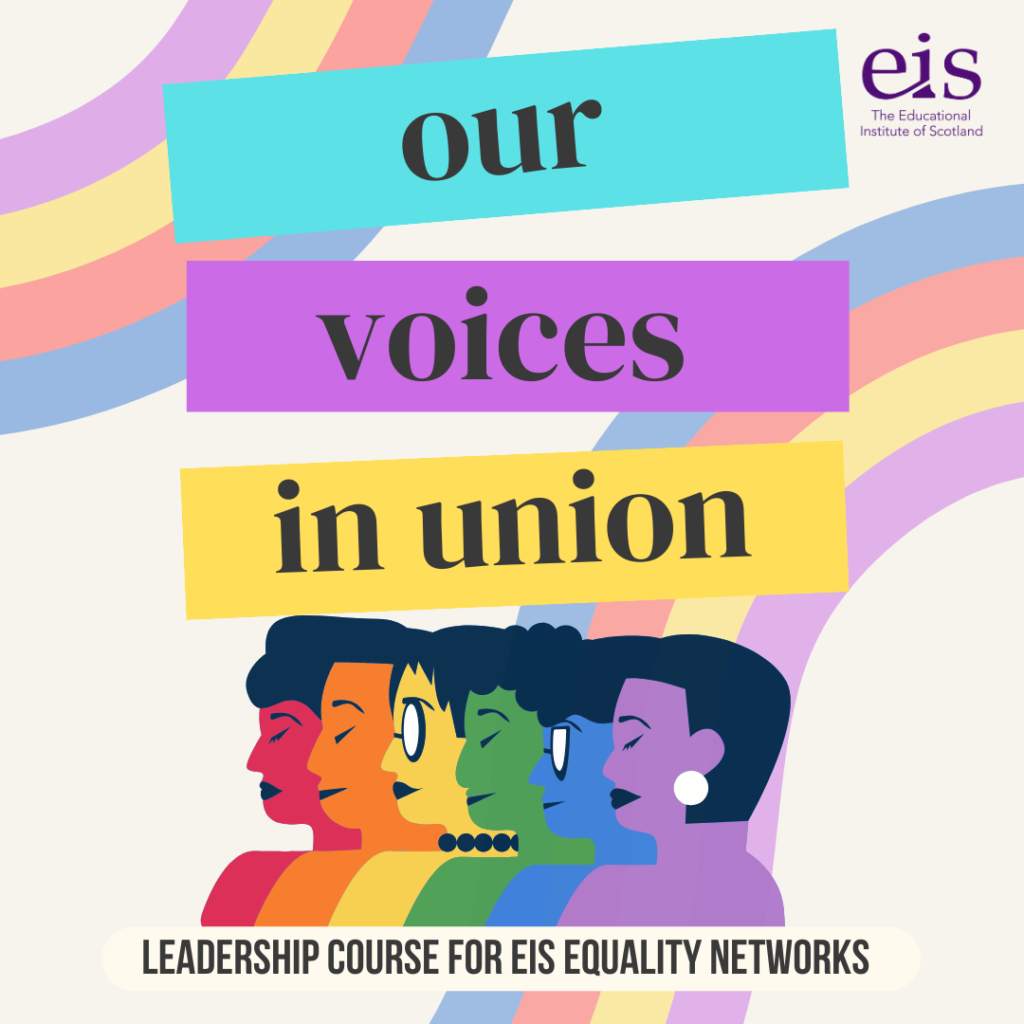
About this topic
The Educational Institute of Scotland (EIS) has a strong commitment to anti-racism, and a longstanding track record of tackling discrimination and harassment within the workplace and within education.
Over the last years, we have grown our anti-racist work and started a national EIS BAME network, as well as taken up chairing of the Diversity in the Teaching Profession and Education Workforce, a Scottish Government subgroup to the Anti-racism in Education Programme.
As part of this topic, you will consider how racism may manifest for people of colour, and how we can have braver conversations about racism.
The expert videos are provided by Equality, Diversity and Inclusion trainer Ellie Muniandy.
Learning points:
There is power in the Union to tackle discrimination, harassment and victimisation both through the organising agenda and through individual member support. We should also work to create an inclusive culture from the outset, rather than waiting until there is a racist incident to prompt anti-racist action. A diverse workforce brings many benefits, for teachers and other education staff as well as for learners, the educational establishment, and the wider community.
Anti-racist activity should centre on the voices and experiences of those who are marginalised, and the direction of travel for our agenda should be led by their lived experience, and what they say they need. It is important, however, that not one sole person becomes the voice of everyone from their racial group. Racial groups are not homogenous, so it is important that a range of voices are sought and heard to ensure that representation is truly inclusive.
A key role for for you may be to support local anti-racist action by enabling spaces for reflection and discussion, mobilising members for the cause and growing awareness and momentum. It will also be essential to reflect on your own racial identity, and, especially if you are a person of colour, consider reaching out to allies to support you.
Furthermore, the actual doing of the anti-racism work should not be a burden placed solely on those who experience inequality. White people are in a privileged position to sustain anti-racist action and drive change, without experiencing racism. They can act as important allies in the struggle against workplace and wider societal racism.
Reflection for Padlet
Further information